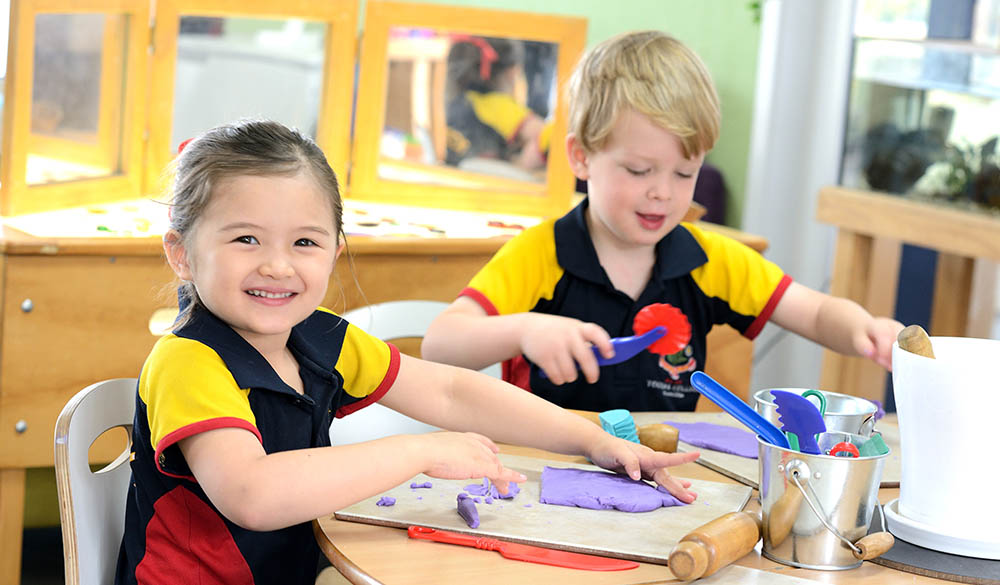By Pat Barbieri
The Early Years Learning Framework for Australia says that without a strong sense of wellbeing, it is difficult to have a sense of belonging, to trust others and feel confident in being, and to optimistically engage in experiences that contribute to becoming.
With physical, mental, emotional and social health all equally important contributors to our wellbeing, it is essential that 3 and 4 year old children develop a strong sense of wellbeing by learning about healthy lifestyles, developing resilience and positively interacting in their environments and with others.
As educators and parents, we have the ability to inspire a strong sense of wellbeing in young children by meeting four key needs:
The need for connection
Having strong connections help children feel seen, heard and valued. For 3 and 4 year old children, developing strong connections with adults and peers can help form the foundation of healthy and happy relationships for many years to come.
The key to developing connections is time and, as educators, we focus on building trusting relationship and showing respect for all children. This may be by creating rituals, carving out moments to spend with each child, or facilitating activities that promote collaboration and co-operation with others.
The need to be active
Young children love to be active and they relish the opportunity to explore their limits, develop new skills and master challenges.
The promotion of gross and fine motor skills and energetic play through activities such as dance, drama, fitness and games provide children with a foundation for independence and an understanding of healthy lifestyles.
Outdoor play is also pivotal with research proving that being amongst greenery, sunshine, and fresh air is beneficial for one’s wellbeing. Having an unstructured environment where children are free to roam stimulates a child’s creativity, reduces their feelings of tension, and invites them to absorb information through all of their five senses: sight, sound, taste, touch, and smell.
The need for kindness
One of the most important things we can teach our children is to be kind, with studies showing that children who show kindness to others experience greater levels of happiness themselves.
How we as educators and parents show kindness to each other sets a precedent for young children. As well as being a role model, educators also seek to nurture kindness by finding ways that we can make a positive difference in the day of others, and by engaging children in experiences and conversations about topics including our emotions, our cultural and spiritual lives and our community.
The need to grow and learn
Within the first five years of a child’s life, the brain develops at a faster rate than at any other stage of their life. It soaks up information like a sponge, and with its 100 billion brain cells it is busy forming connections and linking information. The more knowledge and stimuli you can feed a child’s brain before they begin Prep, the more nourished it will be for years to come.


